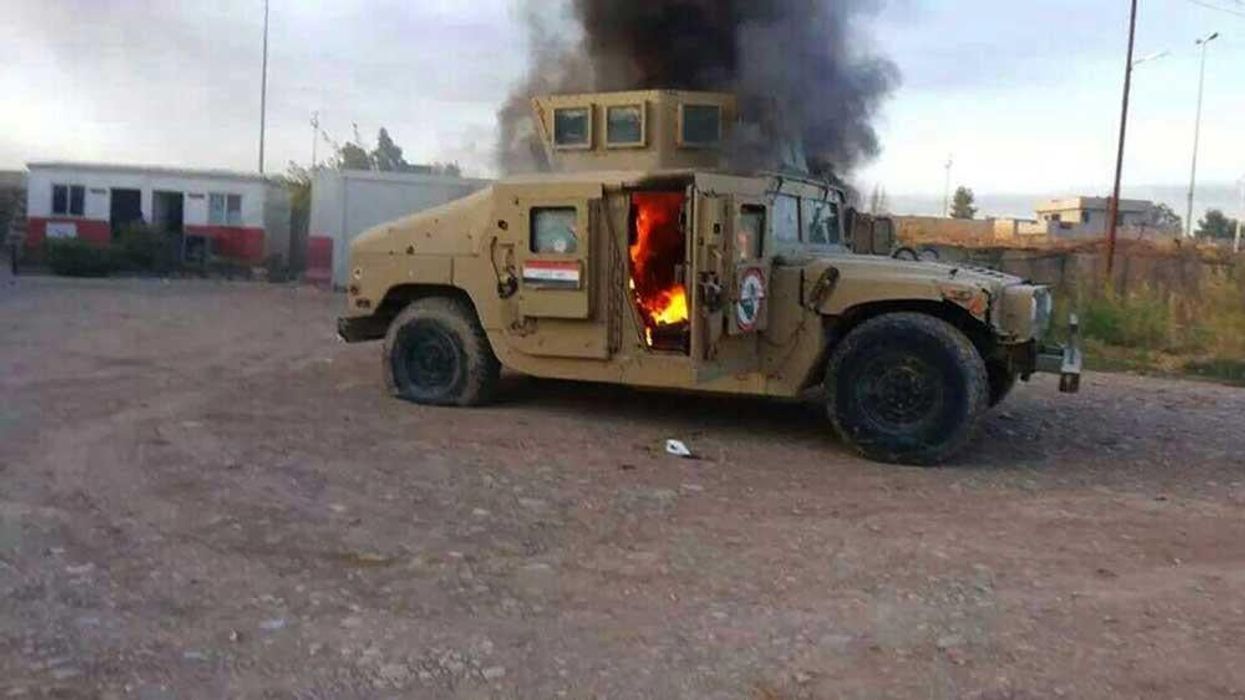News
Patrick Cockburn (edited
Nov 10, 2014

An armoured vehicle belonging to Iraqi security forces in flames in Mosul, June 2014
“It is like a terrible dream,” said a man who has just fled Mosul for Erbil, describing conditions in the city five months after Isis captured it in June. He added that “from the day they started to blow up the mosques people hated them,” referring to the destruction of the Mosque of Younis (Jonah) and other mosques denounced by Isis “as places for apostasy not prayer”.
The man, a small businessman who had been an army officer under Saddam Hussein and is now on a pension, was very nervous that anybody should learn his name. Part of his family has stayed on in Mosul to prevent their house from being confiscated by Isis. Its officials check house-to-house demanding to see documents proving that the occupant is the owner. If they discover that the real owner has left the city, then he is given 10 days to return or his house is confiscated.
Day-to-day life in the city the retired businessman left behind is rapidly deteriorating, he said. For 28 days people had no supply of fresh water or electricity. They rely instead on local generators. Crude oil from Mosul province goes to Syria where it is refined, but the fuel that comes back is poor quality and ruins the engines which it is used to power. Some foodstuffs like tomatoes are cheap because farmers have no customers aside from the markets in Mosul.
Life in Mosul for a Sunni Arab – Christians and Yazidis have been forced to flee – is a mixture of normality, inconvenience and fear. Surprisingly, pensions are still being paid by the central government in Baghdad and the man I met at the weekend was still receiving his. But there is the burden of complying with rules and regulations as Isis imposes its fundamentalist Islamic ideology. Some of these are inconvenient, such as the ban on smoking in public, or trivial, such as the removal of all pictures of Tom and Jerry from the walls of schools.
Open opposition to Isis is limited because people are terrified of savage retaliation at its hands. The retired businessman said this sense of dread never left him, “though generally if you don’t interfere with them, they don’t interfere with you”. But he recalled public executions in the middle of a roundabout, such as that of the lawyer, Sameera Salih Ali al-Nuaimy, who wrote on her Facebook page that the blowing up of mosques and shrines by Isis was “barbaric”. He said that he stayed mostly in his house, only “going out 10 times in the last two months”.
“I was one of the people who hated [Nouri al-] Maliki’s army, but now I would like the Iraqi army to come back,” he said. “People in Mosul would welcome them. Anybody would be better than Isis, even the Israelis. We are dying.”
More: How true is the 'undercover chefs poison Isis fighters' story?
Top 100
The Conversation (0)













